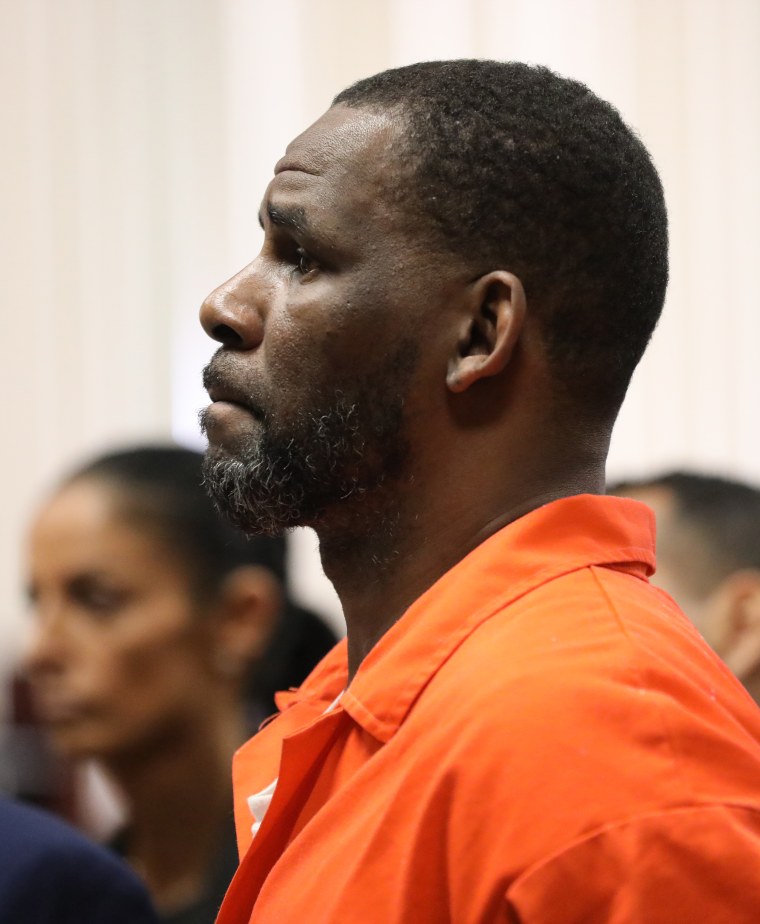 Antonio Perez - Pool
/
Getty Images
Antonio Perez - Pool
/
Getty Images
R. Kelly was been removed from suicide watch at Metropolitan Detention Center (MDC) Brooklyn on Tuesday. The facility initially claimed Kelly was a self-harm risk but reversed course based on a clinical assessment, according to a letter filed by federal prosecutors. The new decision comes four days after Kelly’s attorney, Jennifer Bonjean, sued MDC Brooklyn as well as its warden Heriberto Tellez, other unnamed officials at the facility, and the United States of America on behalf of her client.
In a memorandum filed in the United States District Court for the Eastern District of New York — where Kelly was convicted in September of sex trafficking and racketeering and sentenced last week to 30 years in prison — Bonjean asks the court to “issue an order enjoining MDC Brooklyn from confining Mr. Kelly on suicide watch where he is not suicidal and has never expressed any indication that he may harm himself or others.”
“MDC-Brooklyn has a policy of punishing high profile inmates by placing them under the harsh conditions of suicide watch even though they are not suicidal,” Bonjean’s complaint continues. “Indeed, as recently as June 25, 2022, another high-profile inmate, Ghislaine Maxwell, [the ex-socialite recently sentenced to 20 years in prison for conspiring with Jeffrey Epstein to sexually abuse minors,] was placed on suicide watch even though she was not suicidal. MDC Brooklyn’s policy can only be described as arbitrary, cruel, and unconstitutional.”
Bonjean goes on to list the conditions of suicide watch that she alleges amount to violations of the eighth amendment of the U.S. Constitution (“Excessive bail shall not be required, nor excessive fines imposed, nor cruel and unusual punishments inflicted”) when applied to individuals who are not suicidal:
“Inmates are stripped of their clothing and underwear and dressed in a smock made of material that is akin to the material that moving companies use when wrapping furniture. They are typically placed in a single cell without bed rails and offered no items of comfort. They cannot shower or shave and are sometimes not even afforded toilet paper. Meals are not provided with utensils, forcing inmates to eat with their hands. They have no ability to consult with loved ones or supportive figures. And of course, they are monitored 24-7 by prison officials. Ironically, individuals on ‘suicide watch’ don’t even receive psychiatric care.”
The Federal Bureau of Prisons declined to comment on Ms. Bonjean’s lawsuit or the conditions of Kelly’s removal from suicide watch when contacted by The FADER. The FADER has also reached out to representatives of Ms. Bonjean’s firm.


